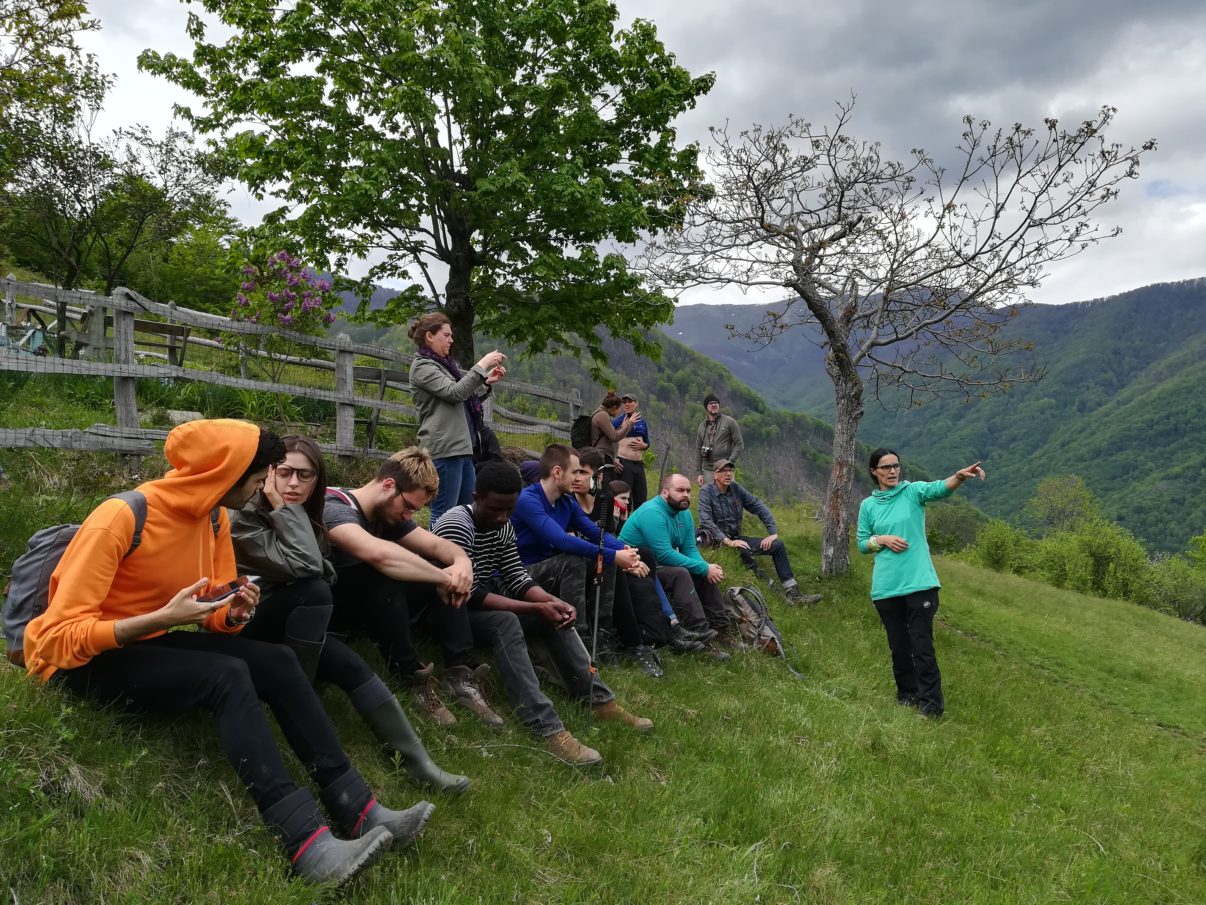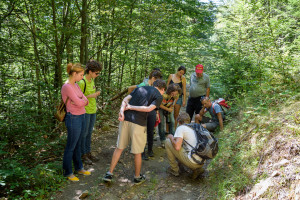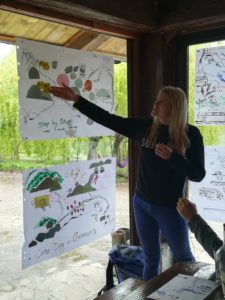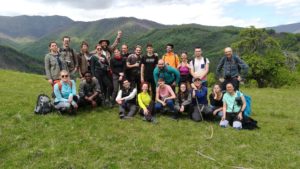How can wild nature help to develop a region? At the beginning of May a group of social entrepreneurship professors and students met with community representatives in the Southern Carpathians rewilding area for a brainstorming session. The ideas they generated will help to develop nature-based business and reinforce the connection between people and locally reintroduced bison.

Collaborative innovation
Community support is a key aspect of rewilding – it is widely acknowledged that projects are only successful when local people are engaged and enthusiastic. This means finding ways for them to share in the economic benefits which rewilding can bring. Developing new ideas for nature-based business is part of this support mechanism.
At the beginning of May, a multinational group of 22 social entrepreneurship professors and students gathered in the village of Armeniş – close to the first bison release site – where they met with representatives of the local community association called AMZA (Bison Hillock Association Armeniş). In a highly productive collaboration, this so-called “Community Innovation Lab” generated a number of great business ideas to further community development.
New opportunities

Rewilding Europe and WWF Romania have been reintroducing European bison in the Southern Carpathians rewilding area since 2014. Our goal is to work with wild nature – with a particular focus on the bison – to develop the region. Today such development involves nature-based tourism, as well as community-based and educational initiatives.
In the Southern Carpathians, the reintroduction of bison has seen the area’s spiral of land abandonment and rural exodus, loss of biodiversity and fading traditional culture gradually transformed into new opportunities. The comeback of wild nature is attracting young and entrepreneurial people, as well as growing numbers of visitors, contributing to increased incomes and new employment opportunities.
Inventive ideas

With a strong entrepreneurial component, the ideas brainstormed by workshop participants included a common signage system for Armeniş, directing visitors (and locals) to places such as schools and shops, as well as houses offering accommodation and traditional workshops. The signs would be made by local children and feature both bison and traditional motifs.
A second proposal was to sell wool-based souvenirs, based on the products locals make for their own use. This will be debated further at a “Prosperity Camp” in the village of Sat Batran on June 1 and 2. The camp is another concept developed by the workshop, designed to bring city-based entrepreneurs into the community to inspire locals with new ways of promoting and developing their ideas and products. To facilitate the camp the Armeniş municipality is building a new campsite, while local people will provide visitors with transport, food and local products.
Workshop students also came up with an idea for an innovative app. This would connect local producers directly with guests or consumers, incorporating a feature whereby small mountain clean-up operations are rewarded with discounts on local services or vouchers for organic products from WWF’s partners and AMZA.
With the Prosperity Camp kicking off soon, the other ideas generated by the workshop will hopefully soon be developed the help of funds obtained through projects, investments, sponsorships and from local authorities.
Positive feedback

Both students and locals were enthusiastic about the outcome of the workshop. “I was surprised to see how many great ideas the workshop generated,” says Heleen de Lange, a student at the VHL University of Applied Sciences Holland. “Learning about the lives and stories of local people helped us to come up with solutions that really complemented each other. Once you’ve experienced this rewilding area it’s impossible not to want to develop it further and celebrate its beautiful wild nature and culture.”
The Armeniş workshop took place as part of the European Programme “Community Learning for Local Change“, with the support of WWF Romania. The goal of this programme is to promote social entrepreneurship as a solution to the challenges faced by European communities and prepare the students involved for future roles as social entrepreneurs.
Want to know / experience more?
- The Southern Carpathians rewilding area
- Bison reintroduction in the Southern Carpathians
- Rewilding Southern Carpathians Facebook page
- Community engagement in the Southern Carpathians on page 28 of the Rewilding Europe Annual Review 2018
- Bison tracking trip in the Southern Carpathians with the European Safari Company

